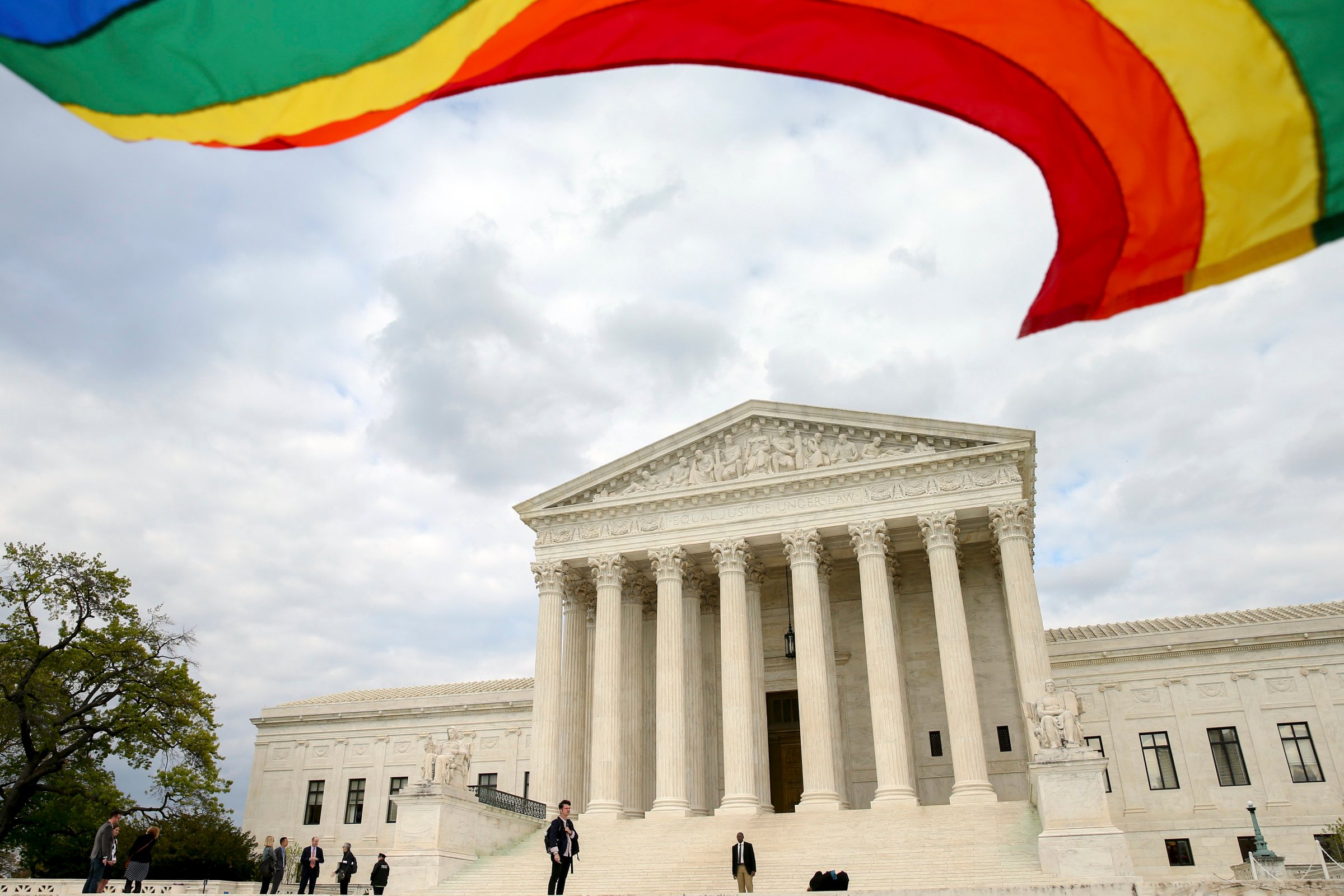
A longtime opponent of same-sex marriage, Pastor Samuel Rodriguez gave a benediction at the last Republican National Convention, sits on the executive board of the National Association of Evangelicals and will host two likely presidential candidates, Jeb Bush and Mike Huckabee, at a gathering of 1,000 Hispanic leaders in Texas on Wednesday.
But if you ask the founder of the National Hispanic Christian Leadership Conference how Republicans should react if the U.S. Supreme Court decides to legalize gay marriage nationwide this year, he doesn’t toe a very hard line. “The Republican position will not be, ‘We will fight arduously to turn back what the Supreme Court has ruled,’ ” he said. “I don’t think you will hear that at all, as a matter of fact.”
Some of Rodriguez’s fellow Republican and social conservative leaders agree, but not all. In fact, it’s hard to find a single strategic plan for opponents of same-sex marriage, many of whom plan to gather Tuesday at the Supreme Court, where the justices will meet for the second time in two years to debate the constitutionality of gay and lesbian marriage bans. The case could lead to a decision that would outlaw same-sex marriage bans this June.
Tony Perkins, the head of the conservative Family Research Council, says that if the court rules in favor of same-sex marriage, the proper strategy is to mount a campaign against judicial overreach modeled after the pro-life campaign against the court’s 1973 Roe v. Wade decision, which found women had a constitutional right to an abortion. Decades after the decision, opponents of abortion continue to make legislative gains in statehouses across the country. “That issue is far from resolved and this will continue to be an issue in the political world from presidential races all the way down,” Perkins says.
Others like Russell Moore, the president of the Southern Baptist Ethics and Religious Liberty Commission, say that the right move is to elevate the issue of marriage in the coming Republican primary contest. “From our view a bad decision will only reinforce how important it is to elect candidates who are going to be wise in appointing judges and justices,” Moore told TIME. “I don’t think a candidate who supports gay marriage could be nominated by the Republican Party right now.”
There is a third group of Christian leaders that have been encouraging even more drastic action: An effort by governors and legislatures to resist a Supreme Court ruling that strikes down bans on same-sex marriage. “Lincoln did not enforce Dred Scott decision,” Huckabee wrote in a recent email distributed by evangelical activist David Lane, referencing a court decision on slavery that helped spark the Civil War. “[A]nd there are several cases where Presidents (Jefferson and Jackson for example, which must be a challenge to Dems who celebrate Jefferson/Jackson Dinners) determined that the courts were wrong and refused to surrender to one of the three branches of government.”
“I’m stunned at the sitting Senators and Governors (Republican no less) who act as if when the SCOTUS rules, it’s forever settled,” Huckabee continued, using an acronym for the Supreme Court of the United States. “The 3 branches are EQUAL. The judicial cannot make nor enforce law.”
Read more: New Strategy Against Gay Marriage Divides 2016 Field
Those views could make for some interesting conversation among participants at Rodriguez’s conference this week. For Rodriguez, who has also been focused on issues like prison and immigration reform, the best strategy forward is to move away from the court’s decision and to start working to protect religious people and institutions who will continue to define marriage as between a man and a woman. “The major pivot will be social conservatives will say, ‘The future of American Christianity is at stake,’” Rodriguez said. “We have been labeled as bigots and homophobes when we are not, and oh boy, this election is about religious liberty and the future of American Christianity.”
But that vision assumes social conservatives speak with one voice, an outcome that is far from certain on the eve of Supreme Court arguments.
More Must-Reads From TIME
- The 100 Most Influential People of 2024
- The Revolution of Yulia Navalnaya
- 6 Compliments That Land Every Time
- What's the Deal With the Bitcoin Halving?
- If You're Dating Right Now , You're Brave: Column
- The AI That Could Heal a Divided Internet
- Fallout Is a Brilliant Model for the Future of Video Game Adaptations
- Want Weekly Recs on What to Watch, Read, and More? Sign Up for Worth Your Time
Contact us at letters@time.com